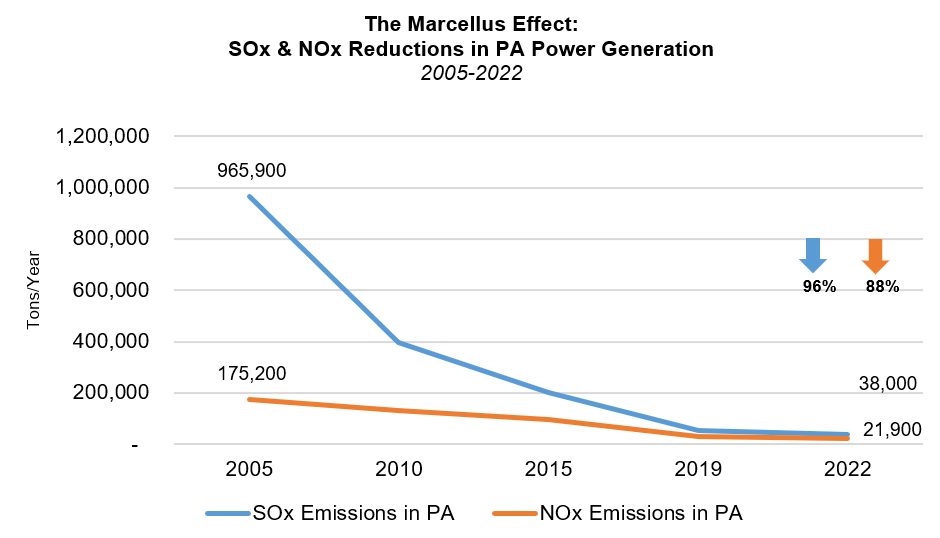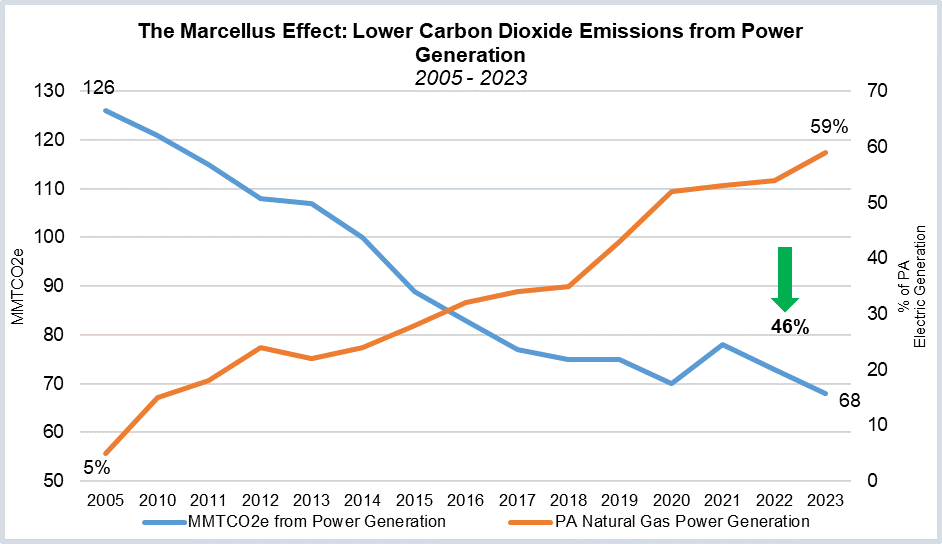Analysis finds improved air quality from natural gas use contributes to community health gains
PITTSBURGH, PA (May 21, 2024) – The increased use of natural gas in power generation has led to historic emissions and air pollutant reductions equaling $450 billion to $1.04 trillion in public health benefits for Pennsylvanians, according to a Marcellus Shale Coalition (MSC) analysis.
The analysis leverages emissions data from the Pennsylvania Department of Environmental Protection (DEP) and applies U.S. Environmental Protection Agency (EPA) methodologies to assign a dollar value to each ton of NOx and SOx reduced.
As shale gas development became prevalent across the Commonwealth and in-state natural gas electric generation increased from 5% to 59% between 2005-2022, criteria emissions contributing to respiratory ailments – nitrogen oxides (NOx) and sulfur oxides (SOx) – are down 81% and 93%, respectively, yielding a range of $7.9-$18.4 billion in NOx and $445.1 billion – $1.02 trillion in SOx cumulative public health benefits for Pennsylvanians.
“Pennsylvania’s energy leadership with the sustained development of clean natural gas is generating substantial benefits for our environment, economy and, as this data shows, the well-being of our communities,” said MSC President, David Callahan. “Thanks to natural gas, Pennsylvanians are breathing cleaner air than ever before, directly translating to improved quality of life for our residents.”
Between 2005-2022, the last year of available data, 11,127,515 fewer tons of SOx and 1,317,335 fewer tons of NOx were emitted from Pennsylvania’s electric power sector, according to DEP data. These air pollutants are commonly associated with respiratory diseases such as asthma, pneumonia, bronchitis and lung cancer.

MSC’s findings come as the Biden Administration unveiled new power plant emission rules that jeopardize the reliability of the nation’s power grid and environmental gains by attacking natural gas generating capacity.
In Pennsylvania, America’s second largest natural gas producing state, gas use in the electric power sector led to the largest year-over-year carbon emissions decline for Pennsylvania on record. Overall carbon emissions from the state’s power sector are down 46% compared to peak 2005 levels. This is equivalent to removing 12.5 million cars from the road for a year – or removing every car in Pennsylvania, New Jersey and several neighboring states combined.

“The undeniable consumer, environmental and energy security gains afforded by Pennsylvania’s natural gas abundance should serve as a wakeup call for those convinced natural gas should not have a role in our future energy mix,” Callahan concluded.




